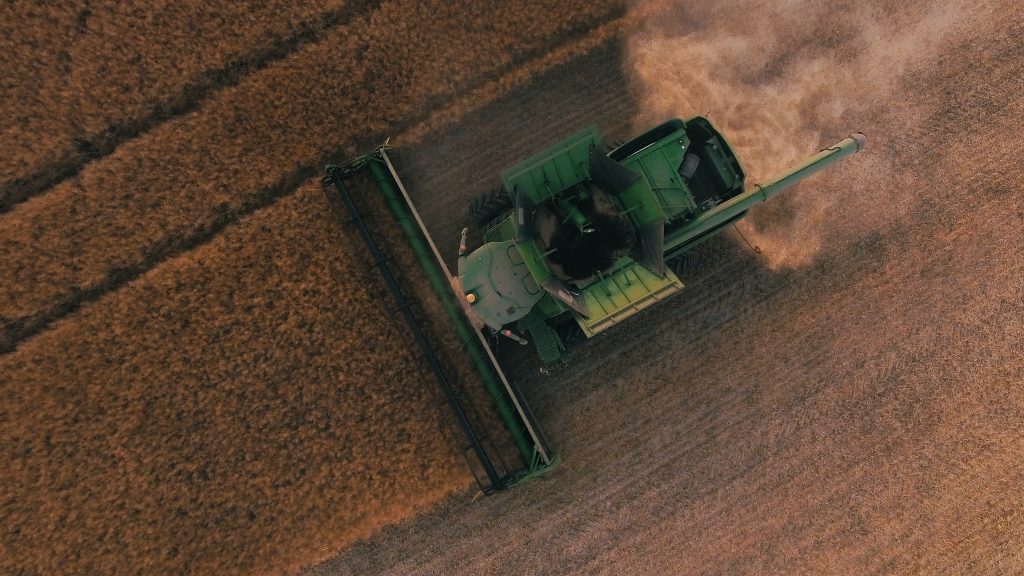Event recap | Identifying and fixing disruptions to the global food system
On Thursday, July 16, 2020, the GeoTech Center a discussion about food security and creating a disruption-proof agricultural industry. The panel, moderated by Dr. David Bray, Director of the Atlantic Council’s GeoTech Center, considered the current weaknesses in the global food landscape, both within developing countries and more developed economies as well as what could be done to fix such issues. Amidst the crisis of COVID-19, which has disrupted so many aspects of the global economy, some of the glaring vulnerabilities of the food industry and agricultural trading networks have come to light and threatened to starve certain regions of the world and segments of the population of vital sustenance. In the face of this dire threat, the panelists highlighted ways that technology can be applied, even at the individual level to achieve greater connectivity, resilience, and value production for farmers and consumers alike.
The panel of experts included Mr. Derry Goberdhansingh, CEO of Harper Paige LLC, Mr. Andrew Mack, Founder and CEO of Agromovil, Ms. Daniella Taveau, Principal of Bold Text Strategies, and Ms. Sara-Jayne Terp, Senior Advisor to the GeoTech Center. Each brought to the discussion knowledge of the food and agriculture industry’s vulnerabilities and experience working to create a more equitable, resilient, and data-informed agricultural economy.
The panel was quick to point out some of the weak links in the global food supply chain. Though some of the flaws have existed for generations, the COVID-19 pandemic has exposed them acutely, particularly in instances where its disruption of international commerce or product flows threatened certain areas with starvation. Market visibility remains a major problem for most small-scale farmers in both developing and developed economies. Many farmers, particularly in hard to reach areas or in regions recovering from conflict, are cut off from access global markets. When their production exceeds the demand of local communities, their food goes to waste, and they struggle to capture the full value of their goods with such a limited body of consumers. In some cases, the lack of visibility is compounded by a lack of infrastructure, both in terms of the roads for transporting products and the connectivity linking farmers with distant consumers.
Accordingly, small farmers struggle to compete with massive, corporate-controlled agricultural systems, which readily buy out competitors and block access to markets. These large-scale farms weaken the resiliency of nearby communities by selling non-consumable products to outside buyers rather than producing commodities necessary for the community’s survival. And, when international supply chains are disrupted, these communities are doubly struck: small farmers cannot find sufficient demand for their products, and other communities cannot access distant markets for food that could have been produced locally.
Each of the panelists has devoted their careers to pursuing different technologies to address the food industry’s vulnerabilities and allow better use of data both by the individuals and in systems. Andrew Mack’s company, Agromovil, works to address the lack of visibility of small farmers in global markets by providing an online marketplace to connect farmers directly to consumers with a need for their goods. Agromovil allows farmers to advertise their products and their locations, facilitating the purchase and transport of these goods. The other panelists are addressing longer-term issues that plague the global food economy. The panel emphasized that leveraging the troves of data available on farming best practices and agricultural trade will be key to creating a more just and resilient food system. more equitable and transparent sharing of food-related data between farmers of all sizes, governments, and organizations alike is essential to securing the future that the panelists envision.

Henry Westerman joins the GeoTech Center as a Project Assistant, having served as an intern with the team this past summer. He is a member of the Class of 2021 in the Georgetown University School of Foreign Service studying Science, Technology, and International Affairs with a concentration in Security. Henry has previously interned with the Library of Congress Digital Strategy team, and at the Department of State Office of Science and Technology Cooperation. Henry’s primary academic interests include geospatial analysis, emerging technologies, and digital sensemaking; he also dabbles in Spanish and Philosophy.

The GeoTech Center champions positive paths forward that societies can pursue to ensure new technologies and data empower people, prosperity, and peace.